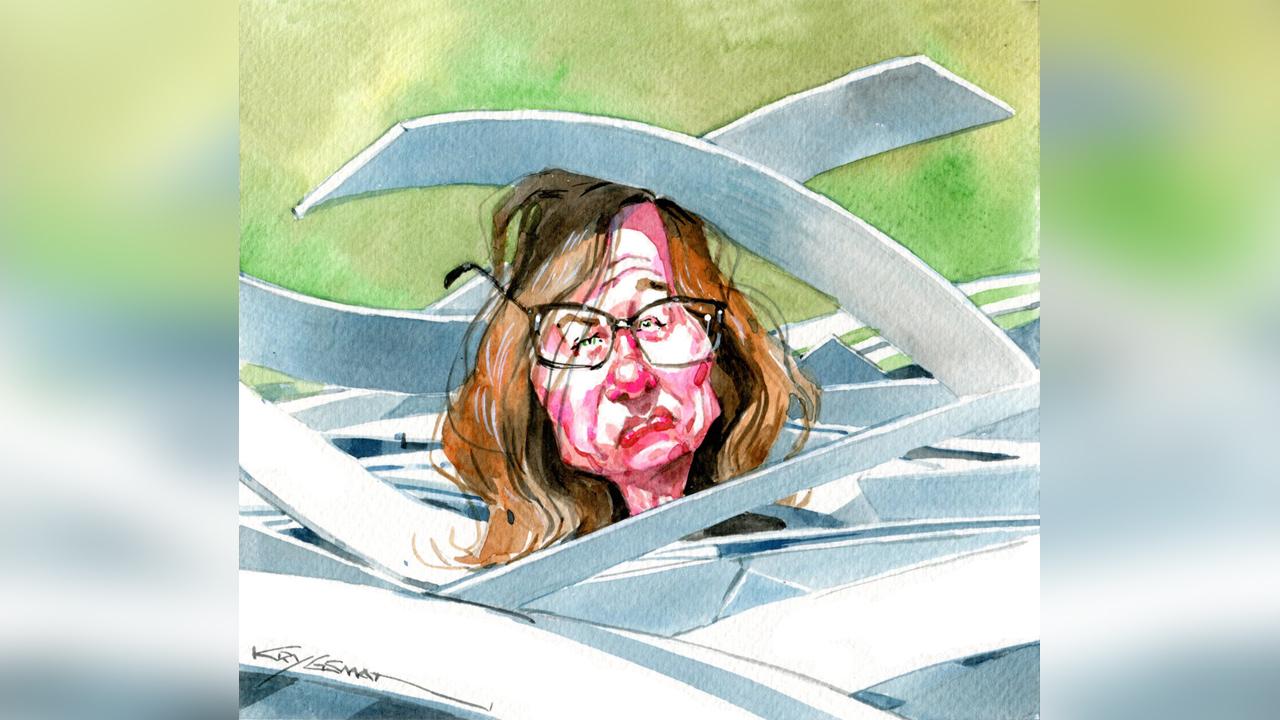Coronavirus: Truth losing out to new ‘yes minister’ mob

Though not acknowledged in statute or procedure, the shift to a more “aligned”, even partisan, leadership of the public service began years ago. But it seems to have accelerated since the introduction of contracts and KPIs for agency heads, along with an ethos of “responsiveness”. These days, the most senior public servants have become a highly mobile group, with a number moving in and out of the public sector and following their side of politics (Labor or Liberal) around the country according to its political fortunes.
That government ministers would wish to exert control over senior appointments, particularly for policy departments, is not surprising in today’s hyper-political world. However, once started, the process acquires its own momentum, as such appointments are typically regarded by the opposition as compromised and needing to be replaced when regaining power. (A case in point was Labor’s reaction a couple of years ago to the appointment of a new Treasury secretary directly out of the then Treasurer’s office.)

There are nevertheless some positives to be had from such arrangements, including more trust between minister and hand-picked agency head, and thus potentially more scope for (hopefully beneficial) departmental influence and, when needed, the speaking of truth to power — when senior bureaucrats really earn their keep.
Against these potential benefits, however, are the heightened risks of senior officers being too aligned to provide balanced or objective advice; or subordinating policy to politics when the going gets tough; or seeking to protect a minister or government politically, even when that requires acting in a way that may be unethical or contrary to the public interest; or suspending procedures for the scrutiny of ill-conceived regulatory initiatives. Instances of each have been on public view.
It is also inevitable that an appointments process conditioned by politics will involve some trade-off with merit, which is fundamental to the Westminster system. Anyone in a position to observe the public service at close quarters in recent years could not but wonder at the basis for certain senior appointments, nor fail to observe a decline in capabilities more generally. This has been more evident the longer a government has been in power. A former Labor politician recently alluded to “politically correct, socialist-left nostrums” pervading the Victorian Public Service. And the Board of Inquiry has heard that “diversity and inclusion” objectives may have unduly influenced which firms were selected for the critically important hotel security task (as well as being the predominant form of training offered).
It follows that the various administrative failures cannot be dismissed as one-offs related to the COVID-19 crisis. Rather, as in Warren Buffett’s analogy of naked swimmers in a receding tide, the crisis has served to expose what already existed below the surface.

The NSW Special Commission of Inquiry into the Ruby Princess, and the Quarantine Board of Inquiry in Victoria, have been of particular service in this respect. Each has identified major deficiencies in competencies and process, together with an alarming lack of accountability. Similar problems were identified at the federal level by the Shergold Report into the disastrous roof insulation program.
Even more disturbing have been the insights gained into the relationship between public servants and their political masters and advisers. Without doubt, the most disturbing spectacle was the “three monkeys” performance by department heads at last week’s hearings in Victoria. That some public service leaders would risk subjecting themselves to ridicule and bringing their organisations into disrepute, rather than admit knowing something they should (or certainly could) have known, but that would be problematic politically, tells us all we need to know.
Some commentators have come to a view, based on the daily pandemic press briefings — so reminiscent of Groundhog Day — that public servants are calling the shots. There has been alarm that hugely impactful decisions requiring political accountability are being left to unelected (and job-secure) public servants. Admittedly, some officials have at times been behaving more like politicians than public servants. But we shouldn’t let the theatre deceive us. More consistent with past trends and emerging evidence is the hypothesis that, at least for the more contentious calls related to lockdown, health and other officials have been acting as human shields, providing cover or deniability for decisions made behind the scenes.
In short, what is being revealed throughout this health crisis is a crisis in bureaucracy itself. Australia has effectively acquired by stealth a system of government that has become less Westminster and more Washington, but without the clarity of the former or the checks and balances of the latter. While the problems appear more acute in Victoria than elsewhere, the trends are all one way.
If this “Washminster” transformation is irreversible, as I believe it is, can the system at least be made to work better? Among other things, there needs to be greater transparency around senior appointments (and dismissals), and more incentive to balance the wishes of a minister with the interests of the public. However it looks like the present system suits too many as it is. If so, we must prepare ourselves for more of the same.
Gary Banks is the former dean of the Australia and New Zealand School of Government and inaugural chairman of the Productivity Commission.







Unlike the permanent heads, or “mandarins”, of Westminster tradition, public service leaders today are essentially there at the pleasure of the minister (and ultimately the prime minister or first minister). And many can really only keep their jobs as long as the minister keeps his or hers, and the government remains in power. The incentives this creates for our top public servants are obvious, and the results have been on display at Victoria’s quarantine inquiry (see for example, “Don’t know, don’t ask, don’t care”, The Australian, September 23). It has not been an uplifting sight.